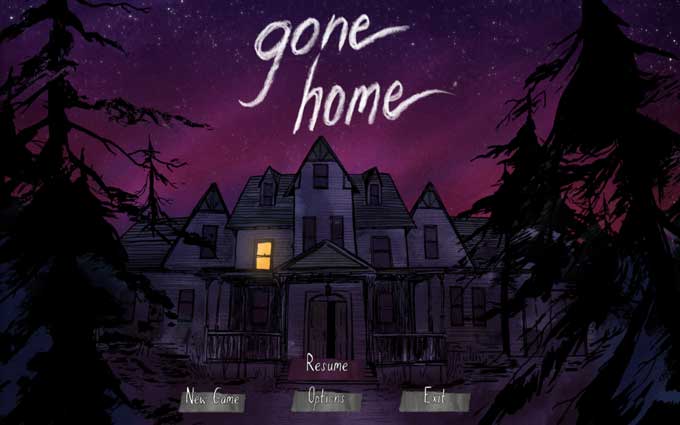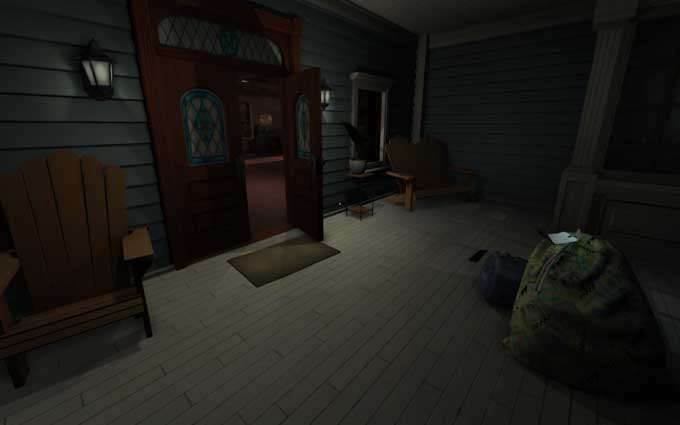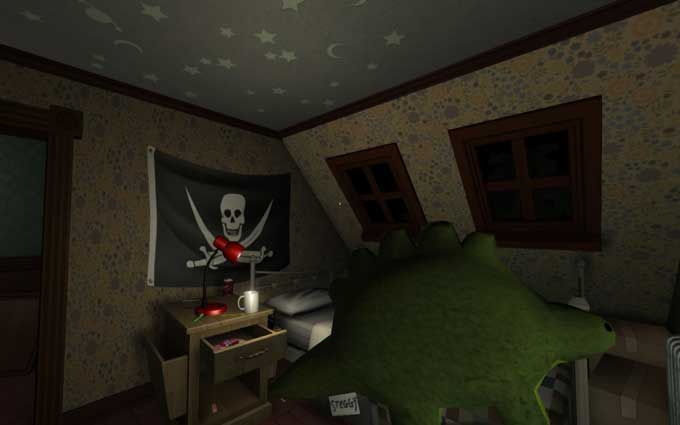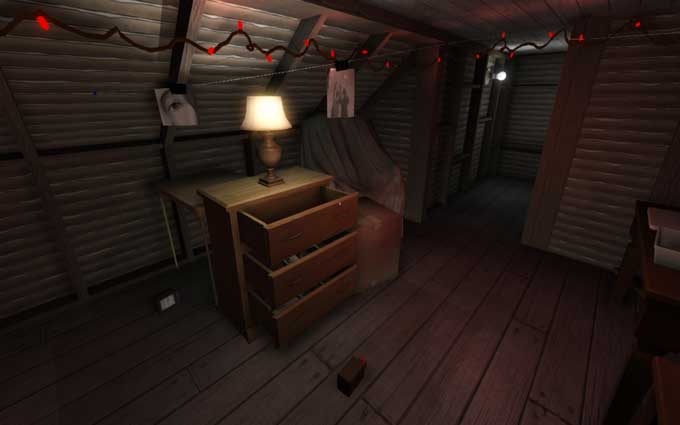Thing practiced: liking a thing
Not sure how or why, but I found myself in an hour-long argument with a bright and palpably earnest young man about video games, their import, and who may or may not be ruining them for everyone. What prompted this was an out-loud comment I made about last year’s Gone Home, so I figured it was worth writing about the game, plus some other things I’ve enjoyed recently.
Gone Home
The Fullbright Company, Aug 2013



Gone Home: Polygon’s 2013 Game of the Year. Recipient of glowing reviews in the New York Times, Kotaku, the Atlantic, and umpteen other outlets of opinion. VGX’s Best Indie Game and Best PC Game of 2013; winner of the Best Debut awards at both BAFTA and GDC 2014; Games for Change 2014’s Game of the Year. Also: the recipient of user reviews calling it a “2deep4u indie hipster walking simulator” and “an interactive chick story” that “sucked balls like ICO,” and “quite possibly the worst game of all time.” Why do people feel so strongly? Why might you care?
I grew up in suburban California in the ’90s, and like everyone my age I dropped everything to obsess about Pokémon. Thanks to crippling social awkwardness and my brother outgrowing his N64, I kept playing games—first finishing Ocarina of Time and Mario 64, then spending way more time with SNES emulations and gaming IRC rooms and BBSes than a kid probably should.
When I got older, video games seemed like the perfect medium for art. Games marry visual art, music, and written fiction: all things I loved. But beyond that, video games involve the gamer—they force you to play a part in creating the art. This makes games expressive in a way other media can’t be. What video games deliver is experience itself—and if art is about evoking a response in the viewer, what could be more effective?
As a gamer, though, I hit a dead end. I couldn’t make the transition from kid games to “real” games. Nothing resonated the way Zelda or Chrono Trigger had. The popular games all seemed to be about something else.
It’s not a coincidence that big-budget games both revolve around empowerment and are marketed mainly to teenagers and very young adults, the demographic groups most likely to feel frustrated and powerless. These games let people do all the stuff they can’t in real life: drive hot cars, get hot girls, shoot guys in the face, be the hero. Domination and destruction will always be appealing—and some of these games are masterpieces. As representatives of a whole art form, though, they cover a narrow range. We’re handed adrenaline, victory, and good-vs-evil times twenty, but what about empathy? alienation? romance?
That’s why it’s so heartening to play Gone Home.
It’s hard to write concretely without spoiling it, but I’ll try. Gone Home is short: roughly movie-length on a typical playthrough. You’re dropped onto a porch on a dark and stormy night, and you walk around examining things, piecing together a story from the fragments you find. All you have is a window into a 3D world—you can’t see yourself, there’s no health meter, no number of lives. There are no character models, no cutscenes, no puzzles; there’s no combat, no story branching, no fail state. It’s the opposite of high-octane.
But it’s spellbinding. As you probe the intricately-crafted spaces, each element lures you in. The art is sumptuous and hypnotic, and the voice acting is exquisite. It’s all just right—the music, the lighting, each squeak of a floorboard and clack of a light switch—multilayered and cohesive, like when someone’s fingers intertwine perfectly with yours. And Gone Home stays playful throughout: witness interactive food items, endlessly flushable toilets, the inexplicable omnipresence of three-ring binders. If you like, you can heap a pile of toiletries on your parents’ bed, or turn on all the faucets. If you’re scared, you can carry a stuffed animal.
It works. Not because it’s high-concept, but because it’s deeply human. For me, at least, the game unearthed some long-repressed feelings—anxiety, ostracism, the thrill and poignance of a first love; how everything then is either exhilaration or heartbreak.
More than that, though, Gone Home shows that a game can simply tell a story. A story anyone can take part in, one where someone new to games won’t die instantly.
If you’ve ever been intrigued by video games, whether you’re a gamer or not, you should try Gone Home. If you don’t have $20, let me know and you can play it here. If you have $20 but you’re not sure about spending it, try thinking of it as an investment in the Fullbright Company, and in the future of games.
(And if you’re a longtime gamer worried that an influx of new people will dilute gaming culture, qq: Have you ever been shunned and called names by people whose approval and acceptance are important to you? Me too. It sucks. Please don’t be that person.)